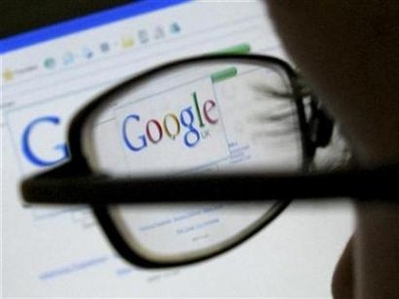
Is Google making us stupid? What a great question to ask.
It sounds kind of stupid because, if anything, with online databases such as Google, we are exposed to more information than ever before. Wouldn't that make us smarter, not more stupid?
Nicholas Carr makes excellent points in his article "Is Google Making Us Stupid?" He poses that, since most of our information-getting and reading takes place on the internet, and this reading is quick and changing, that our thinking processes are becoming altered because of it. We read shorter pieces and quickly jump to the next thing. We no longer need to read longer books because we can read excerpts or go to Sparknotes. Our brains are becoming used to quick internet reading, not reading of long texts in paper form anymore.
Read the article from The Atlantic here.
"My mind isn’t going—so far as I can tell—but it’s changing. I’m not thinking the way I used to think. I can feel it most strongly when I’m reading."
Now with text messages, blogs, emails, online articles, databases, links, and abbreviated notes, we receive information in a totally different way than before. In essence, this changes our minds and the way we think. I think it's an excellent argument to pose.
“We are not only what we read,” says Maryanne Wolf, a developmental psychologist at Tufts University and the author of Proust and the Squid: The Story and Science of the Reading Brain. “We are how we read.”
I can already see this in the classroom in the younger generation than myself. They grew up with the internet and all of its benefits (and hindrances). They live in the Information Age, but will they suffer because of it?
These students clash with traditional classrooms, becoming easily bored with readings and worksheets. They are used to fast-paced thinking and acting in their own lives. Shool is too slow and boring.

Yesterday, a friend of mine was talking about this same issue with me, but she said something that shocked me: "At least we will be the last generation that knows how to do things on our own." Even though my generation grew up with technology, it was still new to me as a teenager. I had to learn it as it developed, and I knew what life was like before it so I can appreciate its benefits. The younger generation is used to this and is native to it. Now what can we do with this drastic change?
"Reading, explains Wolf, is not an instinctive skill for human beings. It’s not etched into our genes the way speech is. We have to teach our minds how to translate the symbolic characters we see into the language we understand."
And further, “The brain,” according to Olds, “has the ability to reprogram itself on the fly, altering the way it functions.”

I agree that reading can change then, because our brain becomes used to our behavior. It's like coaches always told us as players: You will play as you practice. So, when we slouched and didn't play hard in practice, that translated into our performance. You fall into routines, patterns, and habits. It's just human nature. Can't the same be true with reading?
And, I think that the thinking process is completely different when using a computer as opposed to a typewriter or paper/pen. The thought process is much slower when writing, but I think that is a good thing because it makes you think about what you are trying to communicate. Computers are so much faster--the brain must work faster to produce words and sentences, thoughts. It's insane to see this change. Could you imagine how different a work of Hemingway's or Shakespeare's would have been if they used a computer? Perhaps now we'll see a shift in intellectual products and writing pieces.
“You are right,” Nietzsche replied, “our writing equipment takes part in the forming of our thoughts.”
I will leave you with this last piece from the article that I really enjoyed:
"As the media theorist Marshall McLuhan pointed out in the 1960s, media are not just passive channels of information. They supply the stuff of thought, but they also shape the process of thought. And what the Net seems to be doing is chipping away my capacity for concentration and contemplation. My mind now expects to take in information the way the Net distributes it: in a swiftly moving stream of particles. Once I was a scuba diver in the sea of words. Now I zip along the surface like a guy on a Jet Ski."
So what do you think of Carr's arguments or the article itself?


3 comments:
It must show how effective your beloved schooling system is then - "shool"
They always taught me in the classroom to read, reread, then have someone else read it - then read it again. I must have just paid attention though. ;)
o3p04q6z11 c7l57w9b78 w0k12b1k60 b5t91m4g69 m3h38m3i20 w7q08m8w40
bape
off white
fear of god
Post a Comment